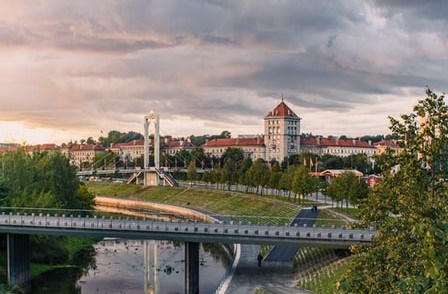The European Commission announced on Monday that Esch-sur-Alzette, Luxembourg, Kaunas, Lithuania, and Novi Sad, Serbia, will hold the title of European Capital of Culture for one year as of 1 January 2022.
This gives them the chance to boost their image, put themselves on the world map, promote sustainable tourism and rethink their development through culture. The title has often a long-term impact, not only for culture, but also in social and economic terms - both for the city and the surrounding region.
The initiative to start the European Capital of Culture was taken in 1985 by Melina Mercouri, then Greek Minister of Culture. It has since become one of the most high-profile cultural initiatives in Europe. Cities are selected based on a cultural programme that must have a strong European dimension and contribute to the long-term development of the city and its surrounding region.
“During the pandemic, culture was vital in our societies,” said Margaritis Schinas, Vice-President for Promoting our European Way of Life. “It enabled the circulation of ideas and brought our communities closer together, beyond borders. This is exactly the ambition of the European Capitals of Culture initiative, which comes back in force in 2022 with three dynamic title-holders."
“I hope that Esch-sur-Alzette, Kaunas and Novi Sad will harness the full potential of culture to enrich our life experience and showcase their many positive impacts in terms of social integration, territorial cohesion and economic growth,” he added.
The three cities have in common that they are the second-largest cities in their countries but differ in history, culture, architecture and size.
Esch-sur-Alzette, a former farming village, is the smallest city which changed when iron ore was found in the area in the 1850s. With the development of the mines and the steel industry the town's population multiplied tenfold in a couple of decades. However, the mines and the industry have been closed down and today the city is being redeveloped.
Kaunas and Novi Sad are bigger cities with played an important role in the history of their countries and suffered during World War II. Kaunas was the capital of Lithuania between 1920 and 1941 and was occupied by both Nazi-Germany and Soviet Union. Both were multi-ethnic cities and in particular Kaunas had a significant Jewish population before the war.
In 2015, 44 objects of Kaunas interwar modernist architecture were included in the List of European Heritage Sites. In 2017 Kaunas has been given the name of the UNESCO City of Design. Kaunas’ modernist architecture, which received the European Heritage Label, will get renewed attention and host many cultural events during 2022.
Novi Sad is the first European Capital of Culture in Serbia. The yearlong cultural programme of Novi Sad aims to further connect the city’s and region’s cultural community and inhabitants with the EU and reinforce their links with the rest of the Western Balkans area.
To awaken the multicultural memory of Kaunas city and towns in its district and remind inhabitants and visitors of its rich history, the program Memory Office was launched. Just in time for the grand opening of Kaunas 2022, the Memory Office published a book called “The Jews of Kaunas.”
“We didn’t aim for a traditional book full of facts and documents,” says Dr Daiva Citvarienė, the curator of the program, in an interview. “We wanted it to cause curiosity. History can be fascinating, and it can be presented playfully. We’re speaking about a period of several hundred years about the community’s culture, traditions, and customs.”
“It’s painful for everyone that understands the size of the tragedy that happened in Europe and our city during WW2,” she added.
The Brussels Times

